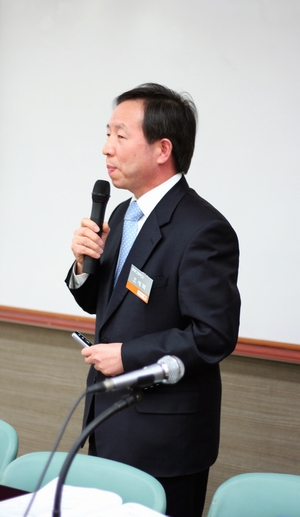입학사정관제 도입, 공교육 정상화의 대안인가?

고려대, 연세대, 성균관대 등 주요 사립대학의 입시 정책이 사회적 논란을 불러일으키고 있는 가운데 입학사정관제가 공교육 정상화의 주춧돌이 되어야 한다는 주장이 제기됐다.
우리대학 입학처(처장=고유환)가 지난 19일 (목) 우리대학 초허당 세미나실에서 개최한 ‘입학사정관제정착을 위한 방안 모색’에서 중동 고등학교 오세목 교감은 “지나친 사교육 열풍 때문에 수시제도가 왜곡 되고 있다.
심지어 발명왕을 뽑는 전형에 학생을 합격시키기 위해 발명만을 전문적으로 가르치는 학원도 봤다”며 개탄을 금치 못했다. 오 교감은 이어 “도입 초기를 맞은 입학사정관제가 수시의 특기자 전형같이 사교육의 대상으로 전락하지 않고 올바로 정착되기 위해선 많은 고민과 노력이 필수”라고 말했다.
이에 전경원 건국대 입학사정관은 “입시제도가 공교육의 정상화라는 목적과 연동되지 않고 개별적으로 작동될 때 학교 현장은 혼란만을 겪게 된다”며 대학과 공교육 현장은 긴밀한 소통을 유지해야 한다고 주장했다.
소통의 수단으로 그는 학생기록부의 내실화를 꼽았다. 그는 “입학사정관은 그 학생의 일차적인 정보를 학생기록부에서 얻을 수밖에 없다. 따라서 학생기록부를 적는 교육 현장의 교사에 대한 신뢰도 매우 중요하다”며 학생기록부의 중요성을 강조 했다.
이번 세미나에선 우리 대학 입학처 주관으로 입학사정관제도가 어떻게 공교육 정상화에 도움을 줄 수 있는지에 대한 논의가 주를 이뤘다 이 날 세미나에는 고려대와 성균관대, 중앙대, 카이스트 등 27개 대학 60명의 입학사정관과 15개 고등학교 22명의 교사들이 참석해 입학사정관제의 올바른 정착에 대해 큰 관심을 나타냈다.

